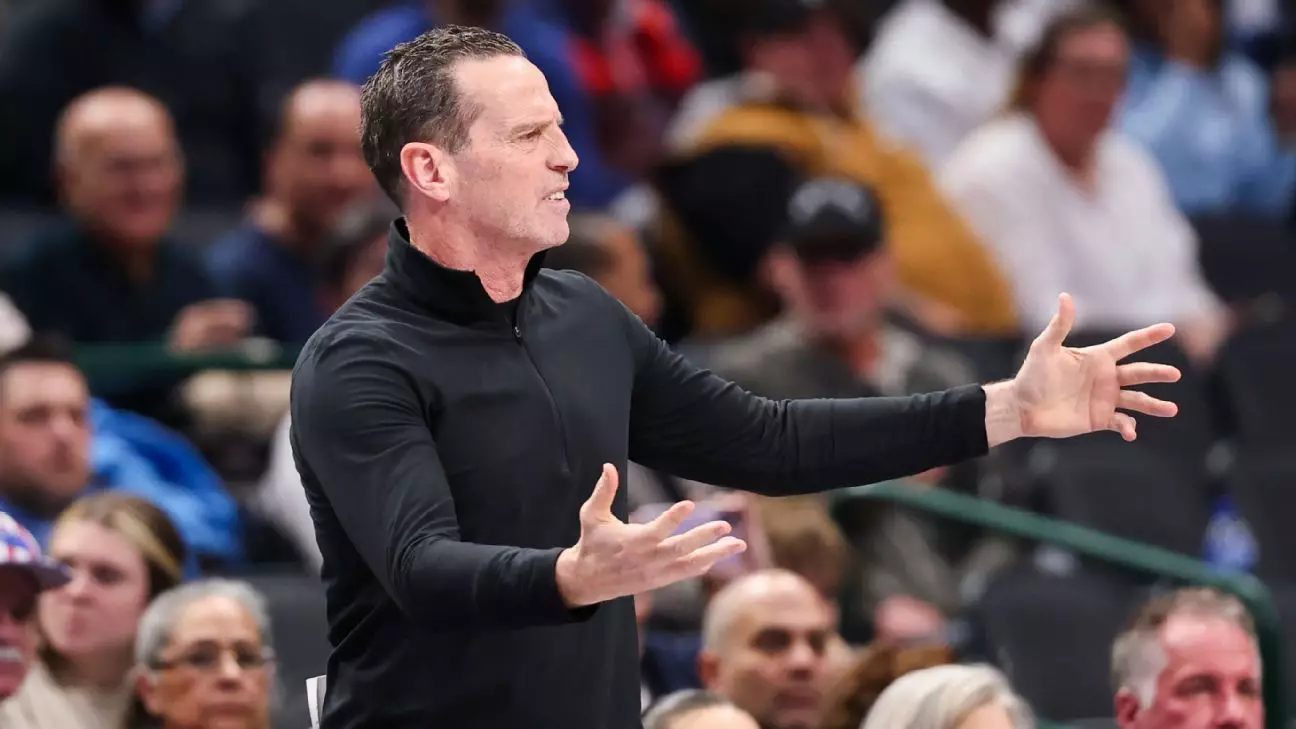The Cleveland Cavaliers faced the Indiana Pacers in a heart-stopping Game 2 of the Eastern Conference semifinals, only to watch their 20-point lead evaporate. The final score — 120-119 in favor of the Pacers — echoed an unfortunate reality for the Cavaliers, encapsulating a game filled with twists, turns, and critical moments that left fans and analysts alike questioning not just the players’ performances, but also the officiating crew’s important yet missed calls.
In retrospect, it’s easy to attribute the loss to a few glaring moments, but what becomes evident is that the chokehold on victory was not purely the fault of external forces, such as referees or technicalities. Rather, it was a kaleidoscope of mistakes — from coaching decisions to player execution — that ultimately cost the Cavaliers the game. The NBA’s Last Two Minute Report revealed that three significant non-calls occurred in the final minutes: lane violations and a missed defensive 3-seconds call that directly contributed to the trajectory of the game.
Referee Oversight: Necessary Evil or Systemic Issue?
No one can deny that officiating plays a pivotal role in shaping the outcome of close contests. In a situation as tense as the one faced by the Cavaliers, the apparent missed calls added a layer of frustration. Tyrese Haliburton’s winning moment, which came after a questionable series of events surrounding his lane violation, exemplifies how a moment can pivot on someone else’s oversight.
However, placing blame on the referees alone overshadows the larger narrative concerning the Cavaliers’ disintegration during crucial moments. Coach Kenny Atkinson stood firm, refusing to focus solely on officiating shortcomings. His insistence on evaluating player performance and his own coaching choices reveals a deeper understanding of the game. Yes, missed calls can shatter momentum, but this cavalcade of errors by the Cavaliers shouldn’t be overlooked.
The 20-Point Disappearance: A Team in Disarray
The most bewildering aspect of the Cavaliers’ performance is how they unraveled after such a comfortable lead. What went wrong? Atkinson poignantly pointed out that the tendency for recency bias impacts perception. In the chaos of the final moments, it’s easy to forget the barrage of errors leading up to that climactic scenario.
The team allowed Indiana to engineer a comeback by neglecting fundamental defense and failing to maintain composure. They walked a perilous line between confidence and over-aggression—unwittingly inviting the Pacers back into the game. As Atkinson suggested, “We had plenty of decisions where we could have made it,” reflects a collective introspection that seems desperately needed among the players. Their tendency to allow emotional responses to dictate their actions led to a swift decline likely riddled with frustration and panic during the final possessions.
Contrasting Perspectives on Officiating
It’s fascinating to note that while Atkinson was vocal about the mistakes made by both his squad and the officials, Pacers coach Rick Carlisle had a different approach. Carlisle acknowledged the discrepancies in foul counts, indicating the importance of being realistic regarding the role of referees. His assertion that his team was “not expecting any gifts” from officials speaks volumes about the psyche of a coach focused solely on his players’ performance rather than casting aspersions on the referees.
This divergence in approach showcases the complexity of competitive sports — the interplay between accountability and the inherent frustration surrounding officiating. Coaches must manage their players’ psyche and emotion while navigating the fine line of justifiable criticism. The contrasting perspectives highlight a broader debate, one bound to ensue in the playoffs: how much should the fate of a game rest in the hands of the officiating crew?
The Road Ahead: Adjustments and Evolving Strategies
As this high-stakes series progresses to Indianapolis for Game 3, the Cavaliers must reckon with their failures while also arming themselves for a fierce battle ahead. With the notion of uncontrollable factors swirling in the dialogue, what truly matters now is how well they can regroup and recalibrate their strategies. It’s a trial by fire, a chance to demonstrate resilience not only against the Pacers but against the weight of their recent disappointments.
Every aspect, from maintaining defensive integrity to employing effective strategies in the heat of battle, must undergo reevaluation. The opportunity for redemption lies just ahead—a chance for the Cavaliers to seize control of their narrative in this tightly contested postseason.

